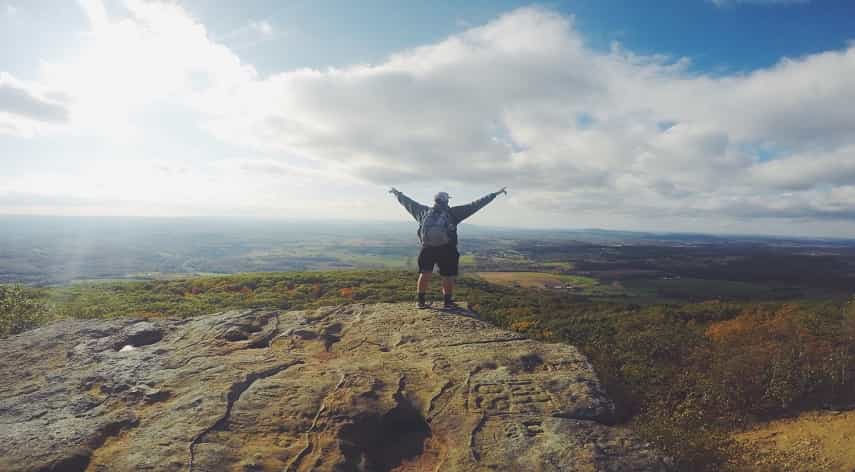Mountain Climbing for Beginners: 7 Steps to Getting Started

The world is home to at least 1,187,049 mountains, each ready for people to explore.
Mountaineering is one of the most challenging sports in the world. Although it takes a lot of planning, the scenery and the feeling of accomplishment once you’ve reached the top make it worth the effort.
In the past, mountain climbing was a hazardous endeavor. Today, with the help of modern equipment and techniques, it’s far safer than it used to be.
We cover everything you need to know to get started in this beginner’s mounting climbing guide.
Table of Contents
Toggle1. Research Mountains You Want to Climb
You’ll want to have an end goal in mind before starting your climbing preparation. For example, a trip to Mount Kilimanjaro will take different planning than a trek up Pikes Peak.
Once you’ve chosen your mountain, find the route you want to take. Decide what time of year is best for you to make your trek.
2. Get Your Body in Shape
The first thing you need to do before you start mountain climbing is to get in shape. When hiking a challenging mountain, you need to have the stamina to do the climb. Before you plan your hike, you should make a training plan depending on the intensity of the climb you want to do.
Determine Your Current Fitness Level
If you are hoping to climb a more strenuous mountain for your first hike, you may want to get a physical. A full medical check and an evaluation by a certified trainer are both excellent ideas.
Figure Out Physical Requirements of the Climb
When you climb a mountain, you’ll need a lot of endurance to reach the top. You’ll have a heavy backpack and be hiking steep terrain.
Depending on altitude, location, and season, different mountains can pose their own challenges. Understand the challenges of the mountain route you choose for your hike, so you know what to train for.
Create a Plan
Create a training plan to help you train your body for the many ways you will challenge it on your climb. Concentrate on cardio, endurance training, balance, and interval sessions. Each of these training areas will help you with various trek aspects.
You can create your own plan by doing your research. If you have a larger budget, consider hiring a trainer.
3. Spend Time Outside
You’ll spend a lot of time in the great outdoors when you go on your trek. If your end goal is to hike some of the world’s tallest mountains, it will take you several days.
Familiarize yourself with backpacking and camping. Start with short trips and add days on until you are comfortable with all that goes into backpacking.
4. Pack the Right Gear
A mountaineering trip requires different supplies from a hike. Knowing how to back a backpacking bag will help you keep the weight of your pack manageable.
Here are some essentials to pack on a multi-day trek.
Equipment
- climbing backpack
- dry ropes
- helmet
- crampons
- headlamp
- shovel if in snowy terrain
- extra batteries
Navigation Tools
- map in a waterproof case
- compass
- guidebook
- GPS
- Altimeter watch
- cellphone
- solar charging pack
Overnight Gear
- a tent made for mountaineering
- sleeping bag rated for the mountain climate
- sleeping pad
Cooking Gear
- camp stove
- fuel
- cooking set
- bowls
- utensils
- insulated mug
- biodegradable dish soap
- quick-dry towel
- water container that collapses
- water bottle
- energy bars or gels
- meals
- extra day’s worth of food
Clothing
- long underwear
- mountaineering pants and shirt
- hiking boots
- wool socks
- rain gear
- insulated coat
- mittens
- gaiters
Other Items
- sun block
- bug spray
- hat
- sunglasses
- toothbrush
- knife
- duct tape
5. Hire a Guide
Another option to help you on your first mountain hike is to hire a guide to help you out. A guide has extensive knowledge of hiking the mountain you want to climb. They will keep you safe and help you reach the top of the mountain.
6. Take a Mountaineering Class
A great tip for a beginner mountaineer is to take a class to brush up on your skills. An expert can give you advice about mountaineering that you may not otherwise know.
A mountaineering expert will tell you what gear to bring and let you in on helpful techniques. The instructors know the dangers you can face climbing and can help make it so you are better prepared.
7. Safety First
The most critical mountain climbing tips are the ones that will keep you safe. A mountaineering trek is no easy task and takes a lot of planning and training.
If you don’t plan the right way, you can get altitude sickness, injure yourself on your climb, or even die.
You need to learn how to acclimatize yourself so you don’t fall victim to altitude sickness. You can do this by starting low and increasing altitude slowly.
Staying hydrated and fed will help keep your energy up. If your trek is very high, extra oxygen can be beneficial too.
Taking a fire starting kit, altimeter, GPS phone, and first aid supplies are a must. Any of these items can be life-saving in an emergency.
Before you hike, make sure to stretch your body out. You are more likely to injure a body that is tight and cold.
You Won’t Regret the Memories That You’ll Make Mountain Climbing
Although mountain climbing requires many hours of planning, nothing beats reaching the summit. You’ll never forget the exhilarating way you were able to explore the outdoors.
Some of the best beginner mountains require at least a little traveling to get to. Check out our travel section for tips to help you get to your destination fast!
Pankaj Majumder, a seasoned Civil Engineer, combines technical expertise with a passion for innovative infrastructure solutions. With a strong academic background and diverse project experience, he excels in creating sustainable and resilient structures that shape the future of urban development.
Recommended For You
Spread the loveSlot machine games are a staple in the world of gaming, providing an engaging experience through captivating visuals,
Spread the loveMatthew Sluka is a name that has been gaining traction in the world of college football. His impressive
Spread the loveThe rivalry between the Los Angeles Clippers and the Dallas Mavericks has become one of the most intriguing




